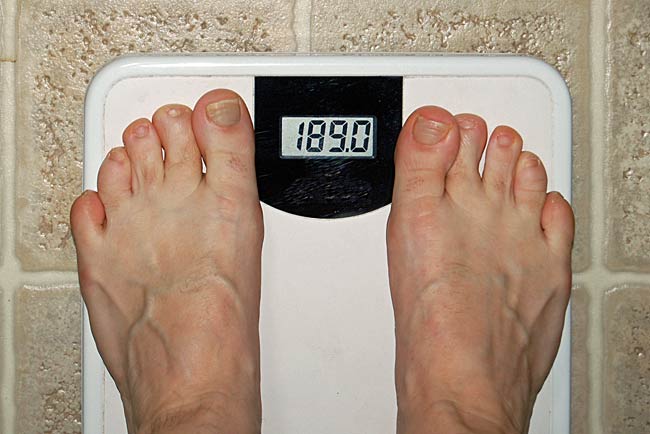Losing Weight Helps Immune System

Get the world’s most fascinating discoveries delivered straight to your inbox.
You are now subscribed
Your newsletter sign-up was successful
Want to add more newsletters?

Delivered Daily
Daily Newsletter
Sign up for the latest discoveries, groundbreaking research and fascinating breakthroughs that impact you and the wider world direct to your inbox.

Once a week
Life's Little Mysteries
Feed your curiosity with an exclusive mystery every week, solved with science and delivered direct to your inbox before it's seen anywhere else.

Once a week
How It Works
Sign up to our free science & technology newsletter for your weekly fix of fascinating articles, quick quizzes, amazing images, and more

Delivered daily
Space.com Newsletter
Breaking space news, the latest updates on rocket launches, skywatching events and more!

Once a month
Watch This Space
Sign up to our monthly entertainment newsletter to keep up with all our coverage of the latest sci-fi and space movies, tv shows, games and books.

Once a week
Night Sky This Week
Discover this week's must-see night sky events, moon phases, and stunning astrophotos. Sign up for our skywatching newsletter and explore the universe with us!
Join the club
Get full access to premium articles, exclusive features and a growing list of member rewards.
Excess fat around the abs can turn the body's defense system against you, leading to heart and other diseases. Australian researchers found that for obese individuals, shedding just 10 pounds could straighten out an off-balance immune system.
The immune system is made up of many different kinds of cells that protect the body from germs, viruses and other invaders. These cells need to co-exist in a certain balance for good health to be maintained. Many factors, including diet and excess body fat, can tip this balance, creating immune cells that can harm, rather than protect, our bodies.
Scientists have known for some time that excess body fat, particularly abdominal fat, triggers the production of so-called "pro-inflammatory" immune cells, which circulate in the blood and promote inflammation in our bodies. Such chronic inflammation has been linked with coronary artery disease and other health problems. In addition, other inflammatory immune cells, known as macrophages, are also turned on within fat tissue.
The study looked at obese people with Type 2 diabetes or prediabetes who were limited to a diet of between 1,000 and 1,600 calories a day for 24 weeks. (Prediabetes is a condition in which people have high glucose levels, but not high enough to be considered full-blown diabetes). Gastric banding — a procedure in which a band is placed around the upper part of the stomach so that it can only hold a small amount of food — was performed at 12 weeks to help restrict food intake further. The results show an 80-percent reduction in the number of pro-inflammatory immune cells, as well as decreased activation of macrophages in the participants' fat tissues.
"Excess weight disorders now affect 50 percent of adult Australians, with obesity being the major cause of Type 2 diabetes and some cancers," said study researcher Katherine Samaras, a professor at the Garvan Institute of Medical Research in Sydney. In the United States, one-third of the population is considered obese.
"The situation has reached crisis point, and people must be made aware that excess fat will affect their immune systems and therefore their survival," Samaras said.
A weight loss of about 13 pounds (6 kilograms) was enough to bring the levels of pro-inflammatory cells down to that found in lean people, according to Samaras.
Get the world’s most fascinating discoveries delivered straight to your inbox.
The scientists could also predict about how much weight people would lose after surgery based on how active the immune cells in their fat were.
"It’s the first time this has been described, and is important because it helps us understand why some people lose weight more easily than others, and that inflammation is involved in regulating the response to [gastric banding] surgery," Samaras said.
More work is needed to tease the exact role of these immune cells in obesity and Type 2 diabetes, the researchers say.
The results were published April 7 in the Journal of Clinical Endocrinology Metabolism.
- Top 8 Reasons Our Waistlines Are Expanding
- Optimism Boots Immune System
- Getting Fat? Blame the Recession
 Live Science Plus
Live Science Plus











